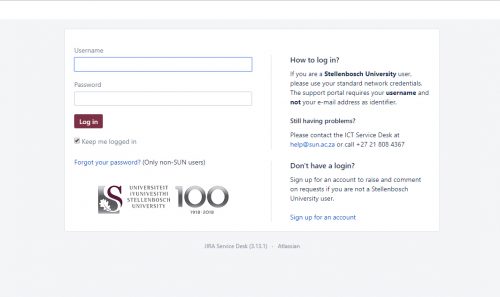In September 2018 Stellenbosch University’s (SU) Student Governance at the Centre for Student Leadership and Structures (CSLS) in the Division Student Affairs (DSAf) hosted the Senior Student Leadership Development Training for the SU Students’ Representative Council (SRC) and Tygerberg Student Council (TSR). This training happens annually as soon as the newly elected SRC and TSR’s are elected. Formerly SU’s SRC and TSR held their trainings separately, but this year they decided to do it together, along with the South African Military Academy.
The training took place in St Helena Bay with a fully packed programme for the weekend. Some themes of this year’s leadership programme comprised of the new leaders establishing a vision and mission for the term in office ahead, talks on higher education context and society, the role of SRC and TSR, understanding of constitutional literacy and role clarification as guidance to their journey, complexities the term might hold and learning about thorough budgeting and proper inter-communication.
This training mainly serves as induction and preparation for the newly elected senior student leaders and aims to develop and prepare them for the term ahead. Mr Thulani Hlatswayo, intern at Student, shared that even though this is the formal purpose of the training, it also aims to extend transformation and development for these student leaders “to become agents of change”. With co-curricular programmes that are offered by SU, transformation should be a key element in how things play out at the university and in town and students should contribute and participate in the change, enhancement, development and growing in society. This is ultimately why information is shared, and why overarching with training, consistency and practicalities need to be applied in leadership roles, to the greater society, and in the long term as a contribution to the country and continent and the globe.
This leadership induction and some other programmes are presented for the Senior Student Leaders during their term in office. Some dual campus trainings include themes such as conflict management and communications and how to navigate around conflict within and with student body, and how communication on topics of critical engagement are the key points of it. Some topics focus on the constitution and teaches leaders to incorporate the whole constitution with their expectations and responsibilities and to develop student affairs. These training sessions allow opportunity for consultation and the space for the leaders to share concerns and develop abilities to work around it and to draw on and implement team dynamics. Leadership excursions include visiting Robben Island and partaking in programmes on decolonialisation in education and transformation, attending Nelson Mandela and Albertina Sisulu centenary celebrations and visiting the FW de Klerk Foundation.
The mentorship programmes that run parallel between the student leaders, and the CSLS and student governance, offers academic support programmes, time and stress management support and an availability of mentors for the SRC to have discussions with if they cannot disclose to the CSLS on support. Student governance aims to promote ethical leadership and enhancement of leadership development in student leaders to promote student accountability, transparency and responsibility.
The training and programmes comprise of a vast variety of themes and educational talks, where for the CSLS and Student Governance the aim isn’t increased participation for statistical accomplishments, but for the benefit of the students, to equip them with knowledge and for them to be consistent in adaptations, flexible around change and inclusive in that sense- to walk into a workplace and society with well-crafted graduate attributes.





.png)











.png)


 “In the next two years, we will develop special interest groups for inter-professional training, student exchanges, research, and health professions education, amongst others."
“In the next two years, we will develop special interest groups for inter-professional training, student exchanges, research, and health professions education, amongst others."



